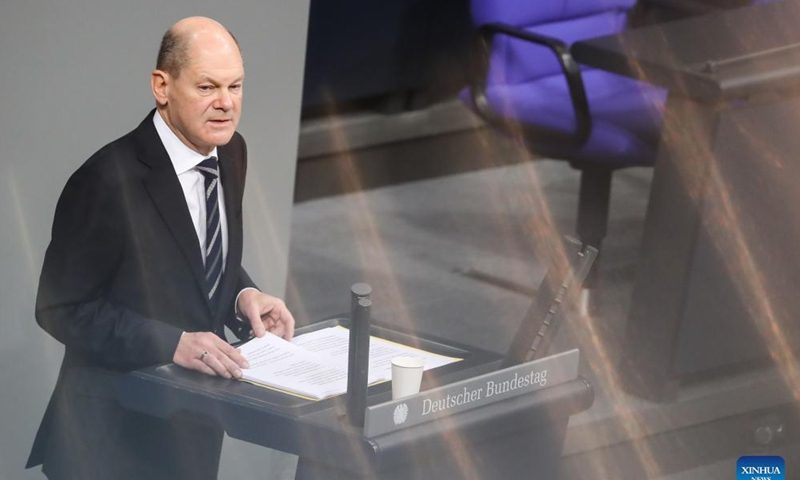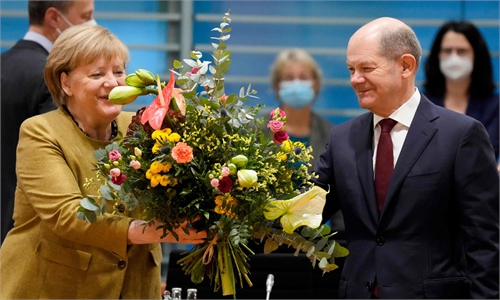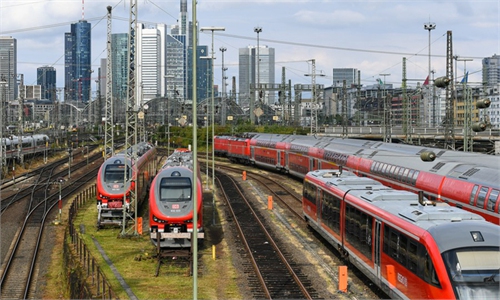
German Chancellor Olaf Scholz delivers his first government statement at the Reichstag building in Berlin Dec. 15, 2021, after he was elected as the new federal chancellor Dec. 8.(Photo:Xinhua)
As new German Chancellor Olaf Scholz’s first formal briefing to Parliament sparked media speculation that the new German government is shifting its tone on China, analysts said it is too early to make that judgment and that finding a balance between pragmatic cooperation with China and dealing with divergences will test German leaders’ political wisdom.
Some media reported that Scholz’s briefing to Parliament hinted at a departure from the Merkel model on China and a tougher China policy.
Scholz on Wednesday gave his inaugural address to the Bundestag after a three-party coalition government, which combined Scholz’s Social Democrats (SPD) with the Greens and the liberal pro-business Free Democratic Party, was sworn in last week. The speech outlined the new government’s policy agenda with issues ranging from the COVID-19 pandemic to climate change and foreign policies.
Referring to China, Scholz said the new government would “not close its eyes to human rights transgression in China” and at the same time, China was an important economic partner. “We must align our China policy with the China we find in real terms” said Scholz, calling for a pragmatic approach, DW reported.
The address, taken together with the previously released coalition deal which mentioned China more than a dozen times, has been interpreted by some Western media as signaling a tougher China policy moving away from previous chancellor Angela Merkel’s approach.
However, Feng Zhongping, director of the Institute of European Studies at the Chinese Academy of Social Sciences (CASS), said that more time is needed to observe whether Germany will change its China policy and if so, to what extent.
“Unlike the previous Merkel government, the current three-party government has more internal divergences to deal with. The Wednesday address reflects the situation as Scholz’s SPD would prefer to carry on Merkel’s pragmatic policy with China but the Greens advocate more radical voices from Germany with an emphasis on human rights,” Feng told the Global Times.
The current hyping of human rights topics and smear campaigns against China have blinded some German politicians and the EU. Such an environment and media influence piles pressure on the new government, experts noted.
The new German government, which is now getting used to being in office, needs more time to adjust its foreign policies, He Zhigao, a research fellow with the Institute of European Studies at CASS, told the Global Times.
“The current stress on human rights topics does not mean the new German government will throw away its pragmatic approach since divergences between China and Germany existed during their previous cooperation. The key is how to deal with divergences while seeking more cooperation – this will also be the challenge for the German government and a test for the leaders’ political wisdom,” He said.



